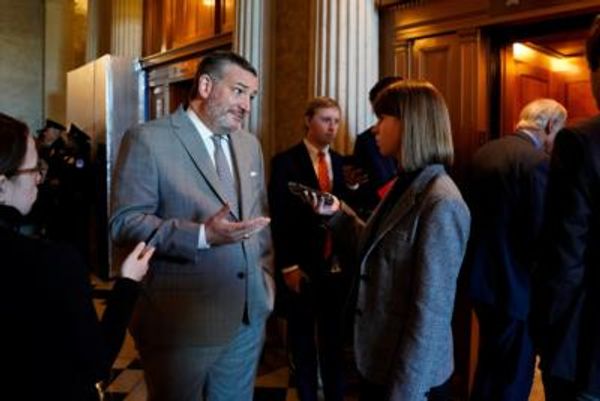
Large parts of the Port Talbot steelworks will be closed or mothballed for years, and would leave the plant and its few remaining workers reliant on imported steel, according to proposals under consideration by the owner, Tata Steel.
Tata Steel has briefed union representatives on the proposals but has yet to announce a final decision. Workers, who marched through the town in protest on Saturday, were left in limbo two weeks ago after the company’s board in India decided to pull an announcement about its plans for the plant at the last moment.
The Port Talbot closures could have a knock-on effect, unions fear, forcing Tata’s automotive steel factory at Llanwern, near Newport, to shut, with the loss of another 600 jobs, and would leave a factory making food tins at Trostre, near Llanelli, reliant on imports.
Stephen Kinnock, the Labour MP whose Aberavon constituency contains the steelworks, said the proposals would be “nothing short of an act of industrial vandalism”, adding that the route to decarbonisation must be a “bridge” and not a “cliff edge”.
Community, GMB and Unite, the three main unions representing steelworkers, are on Friday expected to present an alternative plan drawn up by the consultancy Syndex to try to avert the closures, which would probably result in 3,000 job losses, with many posts gone as soon as March 2024.
The steel industry needs to cut its net carbon emissions to zero if the UK is to meet its pollution reduction targets. However, the plans under consideration by Tata would represent a near-immediate halt to most of the work that goes on at Port Talbot while Tata builds zero-emission-capable electric arc furnaces that will replace its two blast furnaces, with £500m in UK government support.
A rival plant at Scunthorpe, run by Chinese-owned British Steel, last week said it was considering similar plans to replace its two blast furnaces with electric arc technology. Those would eventually cost as many as 2,500 jobs, although British Steel is not contemplating an immediate stop to production.
At Port Talbot the proposals could leave as few as 400 people out of about 3,500 working on steelmaking within months, one person with knowledge of the plant estimated. It is unclear what would happen to workers on mothballed areas – or whether they could wait for work to restart in several years’ time.
The change would significantly reduce Britain’s ability to make steel from scratch. Port Talbot is now capable of producing 5m tonnes a year from iron ore, in a process that transforms the raw material into steel slabs. Electric arc furnaces cannot on their own produce virgin steel, instead mostly relying on recycling scrap steel. The plan to halt iron ore steelmaking at the plant would involve closing two towering blast furnaces, ovens producing coke from coal, and the huge crucibles in which carbon is removed from the iron to make molten steel. Other supporting operations such as the plant’s harbour could also be affected.
The remaining workers would be rolling steel imported from the Netherlands or India until the electric arc furnace opens. Tata this week also cut 800 jobs at its Dutch steelworks.
The Port Talbot-educated actors Michael Sheen and Di Botcher last year visited the plants to celebrate 40 years of operation of the continuous caster that forms the molten steel into slabs but it could be mothballed for as long as four years until an electric arc furnace is built. The hot strip mill that rolls down the slabs into coils could also be mothballed.
That would leave only the cold mill in operation, which forms steel coils into finished products for customers, plus some supporting functions such as the steelworks’ energy generation and administrative staff.
Kinnock added: “It was always understood that Port Talbot’s primary steelmaking capability would remain in place while the electric arc furnace is being constructed, and it would be an utterly shocking and unacceptable betrayal if it were to emerge that the UK government has cooked up a deal with Tata Steel that fails to deliver on that fundamental point of principle and commercial common sense.
“The route to decarbonisation must be a bridge, not a potentially lethal cliff edge.”
Labour has said it will invest £3bn in the steel industry, and it has hinted that this could include money to use green hydrogen to make direct reduced iron, which could then be used in electric arc furnaces. That would retain hundreds more jobs in the industry and the UK’s ability to make steel from iron ore, but neither Tata nor British Steel have so far shown any interest in building a DRI plant.
Alasdair McDiarmid, the Community union’s assistant general secretary, said subsidies for Tata would be a “bad deal for steel” if they resulted in the loss of UK jobs and the need to import steel from abroad.
“This is totally unacceptable and a complete and utter kick in the teeth for our members,” he said.
He said the union was pushing for a plan that would protects jobs and the integrity of our industry, adding: “Tata should not make any decisions or enter into any formal process until it has received and properly considered this report.”
A Tata Steel spokesperson said the company was “not in a position to make a formal announcement”.







